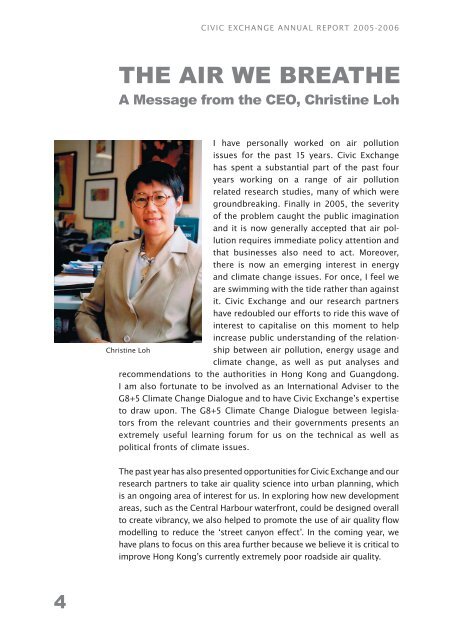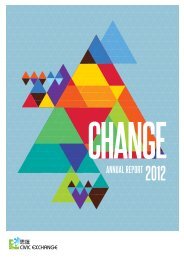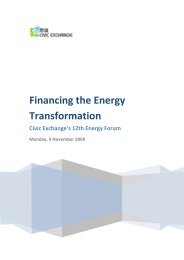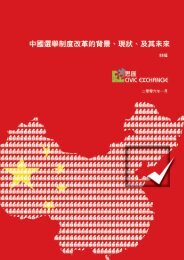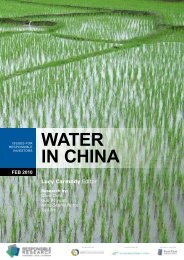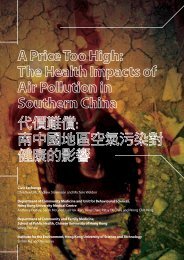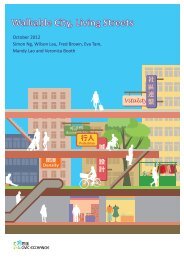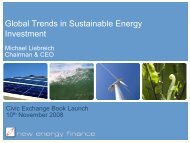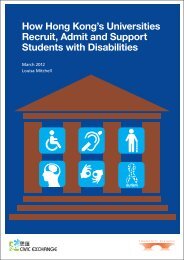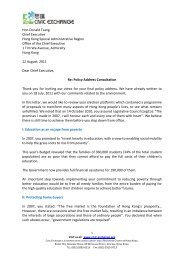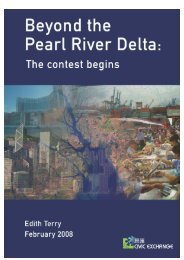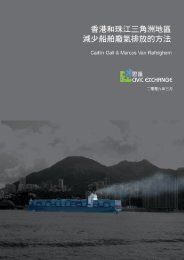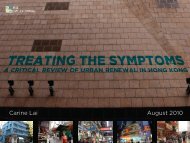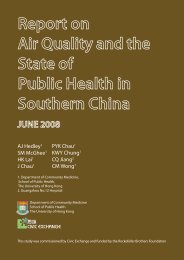Civic Exchange Annual Report 2005-2006: The Air We Breathe
Civic Exchange Annual Report 2005-2006: The Air We Breathe
Civic Exchange Annual Report 2005-2006: The Air We Breathe
You also want an ePaper? Increase the reach of your titles
YUMPU automatically turns print PDFs into web optimized ePapers that Google loves.
CIVIC E XCHANGE ANNUAL REPORT <strong>2005</strong>-<strong>2006</strong>THE AIR WE BREATHEA Message from the CEO, Christine LohI have personally worked on air pollutionissues for the past 15 years. <strong>Civic</strong> <strong>Exchange</strong>has spent a substantial part of the past fouryears working on a range of air pollutionrelated research studies, many of which weregroundbreaking. Finally in <strong>2005</strong>, the severityof the problem caught the public imaginationand it is now generally accepted that air pollutionrequires immediate policy attention andthat businesses also need to act. Moreover,there is now an emerging interest in energyand climate change issues. For once, I feel weare swimming with the tide rather than againstit. <strong>Civic</strong> <strong>Exchange</strong> and our research partnershave redoubled our efforts to ride this wave ofinterest to capitalise on this moment to helpincrease public understanding of the relationshipbetween air pollution, energy usage andChristine Lohclimate change, as well as put analyses andrecommendations to the authorities in Hong Kong and Guangdong.I am also fortunate to be involved as an International Adviser to theG8+5 Climate Change Dialogue and to have <strong>Civic</strong> <strong>Exchange</strong>’s expertiseto draw upon. <strong>The</strong> G8+5 Climate Change Dialogue between legislatorsfrom the relevant countries and their governments presents anextremely useful learning forum for us on the technical as well aspolitical fronts of climate issues.<strong>The</strong> past year has also presented opportunities for <strong>Civic</strong> <strong>Exchange</strong> and ourresearch partners to take air quality science into urban planning, whichis an ongoing area of interest for us. In exploring how new developmentareas, such as the Central Harbour waterfront, could be designed overallto create vibrancy, we also helped to promote the use of air quality flowmodelling to reduce the ‘street canyon effect’. In the coming year, wehave plans to focus on this area further because we believe it is critical toimprove Hong Kong’s currently extremely poor roadside air quality.4


